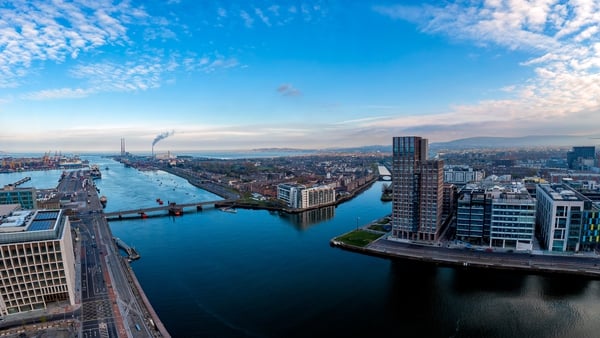The chief executive of Enterprise Ireland has welcomed suggestions that the Brexit transition period might be extended to give the UK reassurances about the so-called backstop arrangement.
The one year extension would provide more time to develop a temporary customs arrangement between the EU and UK.
Speaking at Enterprise Ireland's International Markets Week, Julie Sinnamon said a longer period of transition would be useful.
"The UK is and will be our number one export market. The uncertainty that has been there and depending on what deal is negotiated, companies are going to have to adjust to that new trading scenario and that takes time. It would be useful to have a longer transition period to allow companies make those changes."
She explained that the strategy the agency has been deploying is to direct exporters to diversify their markets, but not to the detriment of the UK market.
We need your consent to load this rte-player contentWe use rte-player to manage extra content that can set cookies on your device and collect data about your activity. Please review their details and accept them to load the content.Manage Preferences
"We have a strategy to grow exports outside the UK by 50% by 2020. We're not walking away from UK. We will continue to maintain position in that market but it's about growing the rest of the world faster.
"Ten years ago, 44% of our exports went into the UK market. Now it's 34%. We've increased exports to UK by 50% in that time, but we've grown the rest of the world faster and that's the strategy."
John Brophy, leader of Business Development with the PM Group, which operates in the UK market, says the company was following that general model.
"The UK is a strategic market and will need to remain so. We've seen a reduction of investment from many client companies so we follow the work elsewhere which has brought us into mainland Europe and we use the UK expertise to help go after those markets.
"We would be confident that some level of good business will return. It's a very big economy and a centre of excellence for much of the pharmaceutical business, the food industry and a centre of excellence for future medicines in R&D and innovation."
Vivian Farrell, CEO of Modular Automation, which sells automation solutions to the medical and technology sectors, said her company trades mainly with the US and has had minimal exposure to Brexit.
"We're in a very lucky position here in that we have a strong med-tech sector. We're working with companies here like J&J, Boston and Stryker. That gives us an open door into their sites in the US where we have to deliver R&D add innovation for our customers."
She said Modular Automation would continue to work through challenges like tax changes, rising protectionism and talk of tariffs, but they are continuing to grow the business in the US.
"We've experienced some challenges in securing visas for workers to grow the business, but otherwise, we find the US quite an easy market to work in."
Julie Sinnamon said tariffs and talk of trade wars had not impacted on the Irish exporting community as yet.
"It's something that we're keeping a close eye on for the future. There is a growing tendency for barriers around the world. Anything that interrupts trade is not desirable," she concluded.






